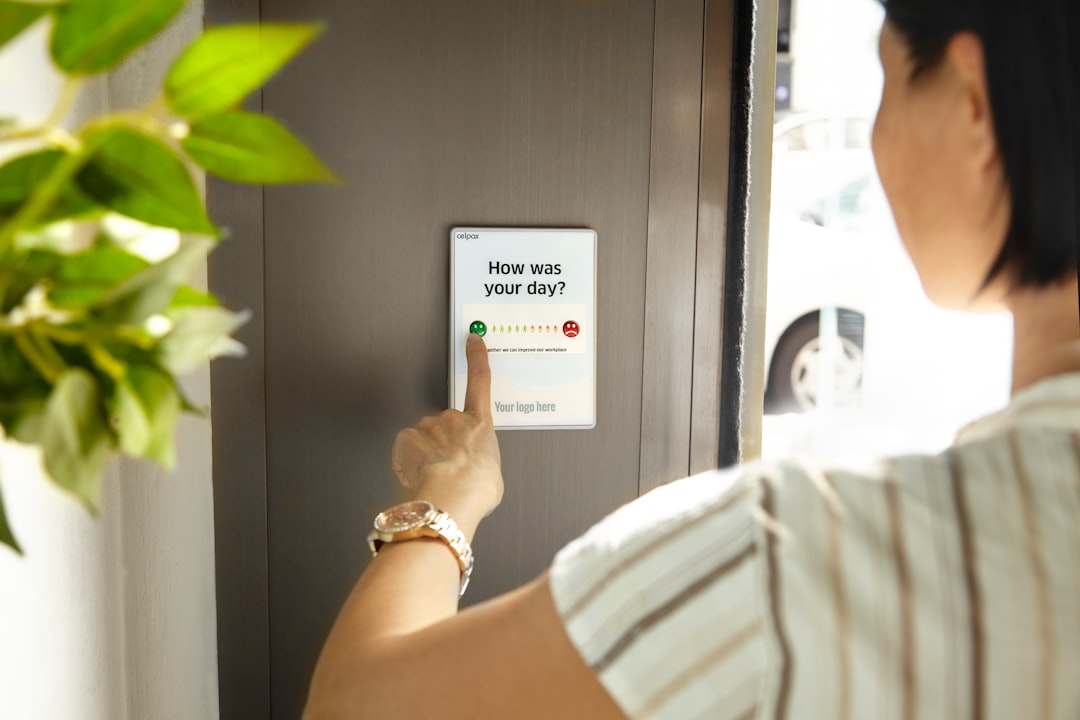
While technical expertise and hard skills are essential for performing specific tasks, soft skills such as communication, teamwork, adaptability, and emotional intelligence play a crucial role in fostering a productive workplace. Employers increasingly recognize that employees who possess strong soft skills can navigate complex interpersonal dynamics, contribute to a positive organizational culture, and drive overall success.
For instance, a software engineer who can effectively communicate ideas and collaborate with cross-functional teams is often more valuable than one who solely excels in coding but struggles to convey their thoughts. Moreover, soft skills are integral to leadership and management roles. Leaders who exhibit empathy, active listening, and conflict resolution abilities are better equipped to inspire their teams and cultivate an environment of trust and respect.
This is particularly important in diverse workplaces where individuals from various backgrounds come together. The ability to understand different perspectives and foster inclusivity can lead to enhanced creativity and innovation. In essence, soft skills are not just supplementary attributes; they are foundational elements that contribute to an organization’s resilience and adaptability in an ever-evolving business landscape.
Key Takeaways
- Soft skills are crucial for success in the workplace, as they complement technical skills and contribute to a positive work environment.
- A positive attitude can have a significant impact on productivity, teamwork, and overall job satisfaction in the workplace.
- Courtesy plays a vital role in building and maintaining positive interpersonal relationships, leading to a more harmonious work environment.
- Developing a positive attitude involves practicing gratitude, reframing negative thoughts, and seeking solutions rather than dwelling on problems.
- Demonstrating courtesy in the workplace can be achieved through active listening, showing appreciation, and respecting others’ time and boundaries.
Understanding the Impact of a Positive Attitude
A positive attitude can significantly influence workplace dynamics and individual performance. Employees who approach their tasks with optimism tend to be more engaged, motivated, and productive. This enthusiasm can be contagious, inspiring colleagues to adopt a similar mindset.
For example, a team member who consistently demonstrates a can-do attitude during challenging projects can uplift the morale of the entire group, leading to improved collaboration and problem-solving. Research has shown that positivity in the workplace correlates with higher job satisfaction and lower turnover rates, underscoring the importance of fostering an optimistic environment. Furthermore, a positive attitude can enhance resilience in the face of setbacks.
When challenges arise, individuals with a constructive outlook are more likely to view obstacles as opportunities for growth rather than insurmountable barriers. This perspective not only aids in personal development but also contributes to a culture of continuous improvement within teams. For instance, a sales team facing declining numbers may benefit from a leader who encourages them to analyze the situation positively, focusing on lessons learned rather than dwelling on failures.
Such an approach can lead to innovative strategies and renewed determination to achieve goals.
The Role of Courtesy in Interpersonal Relationships

Courtesy is a fundamental aspect of interpersonal relationships in the workplace. It encompasses behaviors such as politeness, respect, and consideration for others’ feelings and perspectives. Demonstrating courtesy fosters a sense of belonging and mutual respect among colleagues, which is essential for effective collaboration.
For instance, simple acts like greeting coworkers warmly or acknowledging their contributions can create a more inclusive atmosphere where everyone feels valued. This sense of belonging can enhance team cohesion and ultimately lead to better performance. Moreover, courtesy serves as a foundation for conflict resolution.
In any workplace, disagreements are inevitable; however, how individuals approach these conflicts can make all the difference. When employees engage with one another courteously, they are more likely to resolve disputes amicably and constructively. For example, if two team members disagree on a project direction, approaching the conversation with respect and an open mind can lead to a productive dialogue rather than escalating tensions.
This ability to navigate conflicts with courtesy not only strengthens relationships but also contributes to a healthier organizational culture. (Source: Forbes)
Strategies for Developing a Positive Attitude
| Strategies | Benefits |
|---|---|
| Practice gratitude | Increased happiness and satisfaction |
| Avoid negative influences | Reduced stress and anxiety |
| Focus on solutions | Improved problem-solving skills |
| Surround yourself with positive people | Enhanced motivation and inspiration |
Cultivating a positive attitude requires intentional effort and practice. One effective strategy is the practice of gratitude. Regularly reflecting on what one is thankful for can shift focus away from negativity and foster a more optimistic outlook.
For instance, keeping a gratitude journal where individuals jot down three things they appreciate each day can help reinforce positive thinking patterns over time. This simple yet powerful exercise encourages individuals to recognize the good in their lives and work environments, ultimately contributing to a more positive mindset. Another strategy involves surrounding oneself with positive influences.
Engaging with colleagues who exhibit optimism can create an uplifting atmosphere that encourages similar behaviors. Participating in team-building activities or social events can strengthen these connections and promote a culture of positivity within the workplace. Additionally, seeking feedback from peers about one’s attitude can provide valuable insights into how others perceive one’s demeanor.
This feedback loop can help individuals identify areas for improvement and reinforce positive behaviors that contribute to a constructive work environment.
Tips for Demonstrating Courtesy in the Workplace
Demonstrating courtesy in the workplace involves both verbal and non-verbal communication. Simple gestures such as saying “please” and “thank you” can go a long way in establishing respectful interactions. Acknowledging colleagues’ efforts publicly during meetings or through emails not only shows appreciation but also encourages others to adopt similar behaviors.
For example, recognizing a team member’s hard work on a project during a team meeting can boost their morale and motivate others to strive for excellence. Non-verbal cues also play a significant role in conveying courtesy. Maintaining eye contact during conversations, offering a genuine smile, and using open body language can signal respect and attentiveness.
These small yet impactful actions create an environment where individuals feel heard and valued. Additionally, being mindful of one’s tone of voice is crucial; a warm and friendly tone can enhance communication and foster positive interactions. By consistently practicing these behaviors, employees can contribute to a culture of courtesy that permeates the organization.
Overcoming Challenges and Maintaining a Positive Attitude

Maintaining a positive attitude amidst challenges is often easier said than done. Stressful situations, tight deadlines, or interpersonal conflicts can test even the most optimistic individuals. One effective approach to overcoming these challenges is practicing mindfulness techniques such as meditation or deep breathing exercises.
These practices help individuals center themselves and manage stress more effectively, allowing them to respond to challenges with clarity rather than frustration. Additionally, reframing negative thoughts is crucial for sustaining positivity during difficult times. Instead of viewing setbacks as failures, individuals can train themselves to see them as learning opportunities.
For instance, if an employee receives constructive criticism on their performance, they might initially feel disheartened; however, by reframing this feedback as an opportunity for growth, they can maintain their motivation and commitment to improvement. This shift in perspective not only helps individuals cope with challenges but also reinforces their overall positive attitude.
Building Strong Relationships through Courtesy and Respect
Building strong relationships in the workplace hinges on mutual respect and courtesy. When employees treat one another with kindness and consideration, it lays the groundwork for trust and collaboration. For example, when team members actively listen to each other’s ideas without interruption or judgment, it fosters an environment where everyone feels comfortable sharing their thoughts.
This open exchange of ideas can lead to innovative solutions and stronger team dynamics. Moreover, demonstrating respect for colleagues’ time is another critical aspect of building strong relationships. Being punctual for meetings, respecting deadlines, and valuing others’ contributions all signal that one values their colleagues’ efforts.
For instance, if an employee consistently arrives late to meetings or fails to meet deadlines without communication, it can erode trust and create friction within the team. Conversely, showing respect for others’ time reinforces positive relationships and encourages collaboration.
The Long-Term Benefits of Mastering Soft Skills
Mastering soft skills yields numerous long-term benefits for both individuals and organizations alike. Employees who excel in soft skills often find themselves better positioned for career advancement opportunities. Employers increasingly seek candidates who not only possess technical expertise but also demonstrate strong interpersonal abilities that contribute to team success.
For instance, an employee who effectively communicates with clients while managing internal relationships is likely to be viewed as an asset within the organization. Furthermore, organizations that prioritize soft skills development tend to experience higher employee engagement levels and lower turnover rates. A workplace culture that values communication, courtesy, and positivity fosters loyalty among employees who feel appreciated and respected.
This loyalty translates into increased productivity and innovation as employees are more willing to invest their time and energy into their work when they feel valued. Ultimately, mastering soft skills creates a ripple effect that enhances individual performance while contributing to the overall success of the organization in the long run.
If you’re interested in enhancing your workplace demeanor and soft skills, particularly focusing on maintaining a positive attitude and courtesy, you might find the article “Soft Skills: Work Ethic” highly relevant. This piece delves into the core aspects of developing a strong work ethic, which complements the principles of positivity and courtesy in a professional setting. Understanding and cultivating these skills can significantly impact your career progression and daily work interactions.





